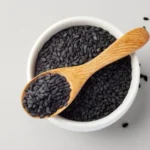Breakfast is often underestimated, with many considering it a minor meal. In reality, breakfast is the most important meal of the day, providing energy after a long night of fasting and fueling you for a productive day of work or study. Here are some suggestions for a delicious and nutritious breakfast.
Eggs
Eggs are a favorite due to their convenience, versatility, and delicious flavor. Eating eggs for breakfast keeps you feeling fuller for longer, helps control calorie intake, and maintains stable blood sugar and insulin levels. Notably, the yolks contain lutein and zeaxanthin, antioxidants that protect your eyes and prevent cataracts and macular degeneration.
While eggs do contain cholesterol, consuming them in moderation does not increase bad cholesterol. Instead, it helps boost good cholesterol, reducing the risk of heart disease and improving insulin sensitivity. Mix up your morning eggs with options like boiled eggs with salad, scrambled eggs with tomatoes, fried eggs, or an omelet to keep things interesting.

Ripe Fruits
Fruits are an essential source of nutrition, packed with vitamins, minerals, and antioxidants that support your health. For a healthy and nourishing breakfast, consider bananas, apples, pears, kiwis, or avocados.

Oatmeal
Oatmeal is an excellent choice for cereal lovers. The beta-glucan fiber in oatmeal helps lower cholesterol, increases satiety, and stimulates the hormone PYY, effectively curbing your appetite. Additionally, oatmeal contains antioxidants that benefit cardiovascular health and help lower blood pressure. However, oatmeal is not a significant source of protein (around 6g in 35g of cooked oatmeal), so be sure to pair it with protein sources like milk, cheese, or eggs for a more balanced breakfast.
Nuts and Seeds
Nuts and seeds, such as cashews, almonds, walnuts, and chia seeds, are nutrient-dense foods rich in protein, healthy fats, and fiber. These components are essential for providing energy and keeping you satiated throughout the morning. Additionally, these nuts and seeds are packed with vital vitamins and minerals like vitamin E, a potent antioxidant that protects cells from damage, magnesium for nerve and muscle function, and zinc for immune support and metabolic regulation.
To maximize the nutritional value of nuts and seeds, try sprinkling them over yogurt or oatmeal for a crunchy, tasty treat. You can also incorporate them into your morning routine by adding them to toast, sprinkling them over salads, or including them in your baked goods.
Milk
Morning is the best time for your body to absorb nutrients, so including milk in your breakfast is essential. Milk provides critical nutrients like calcium, protein, and B vitamins, which support bone health, boost energy levels, and promote healthy nerve function.
Drinking cow’s milk is a popular choice, as it is rich in protein and calcium, essential for muscle and bone development. Goat’s milk is also an excellent alternative for those allergic to cow’s milk, as it is easier to digest and contains a similar nutritional profile. Yogurt, too, offers protein and introduces beneficial bacteria that support digestive and immune health.
Whether enjoyed plain, paired with cereal, or blended with fruit and nuts in a smoothie, milk is a nutritious and tasty addition to your morning routine.
“Maximizing Your Child’s Height and Health: The Role of Quality Milk”
The World Health Organization (WHO) recommends including dairy milk as a part of young children’s daily diets. However, to choose truly quality milk, parents must consider its origin, the soil, and the farming environment, as these are the core factors that determine the nutritional quality of the milk your child consumes.



































